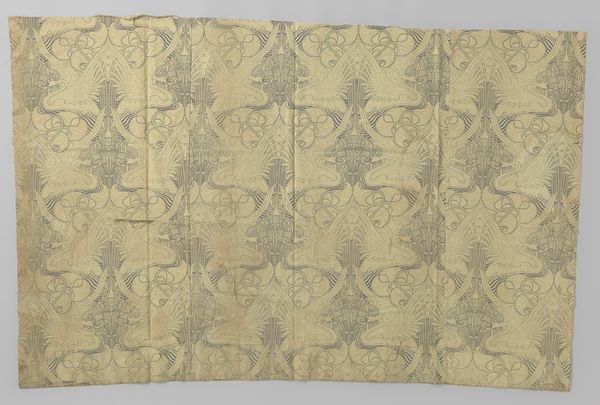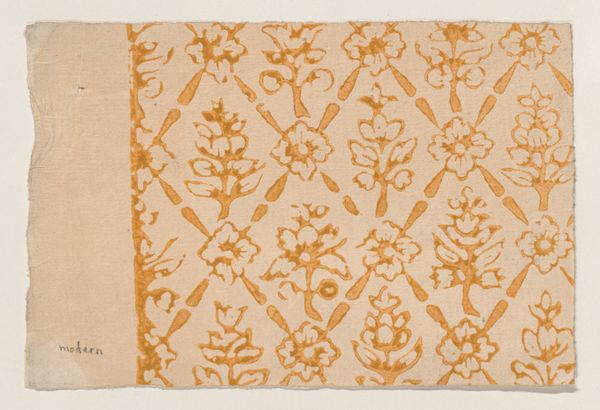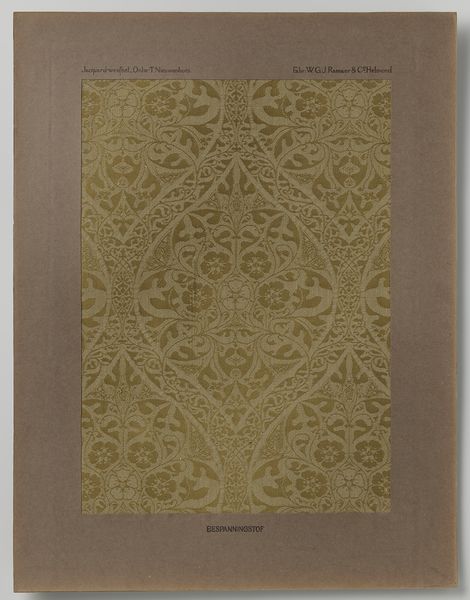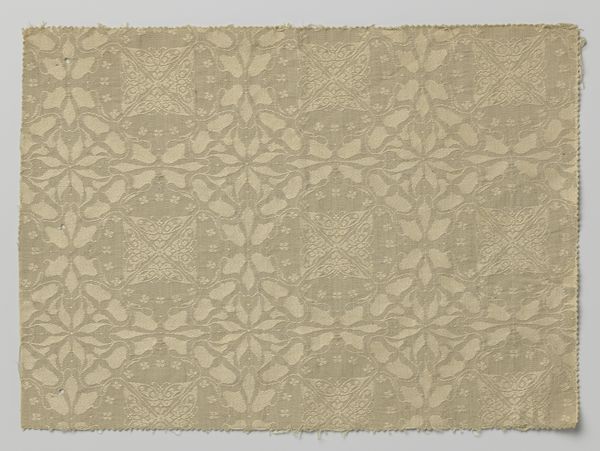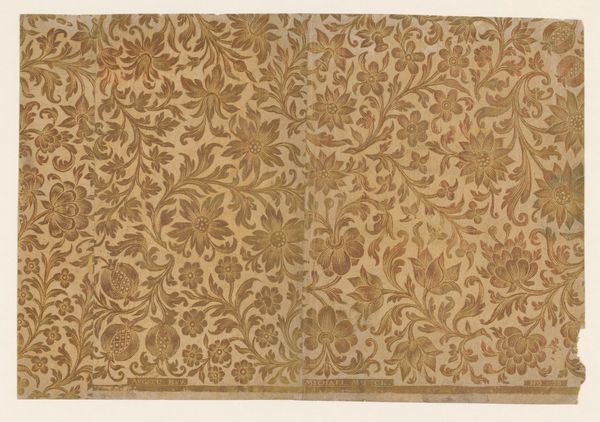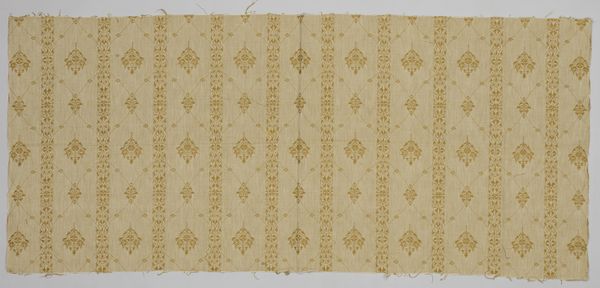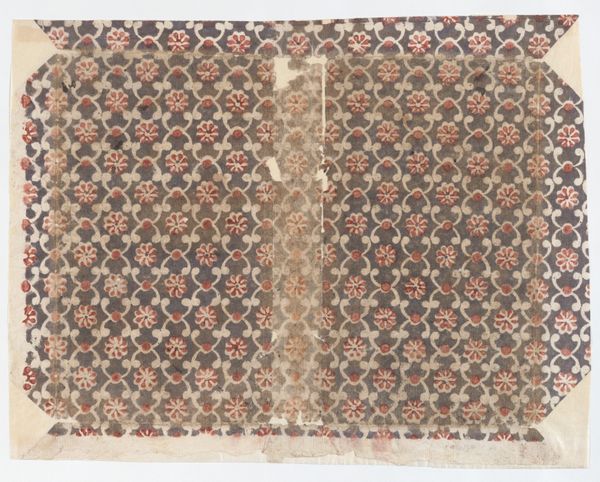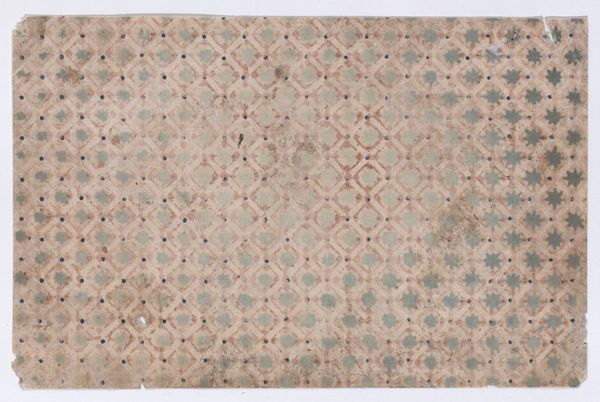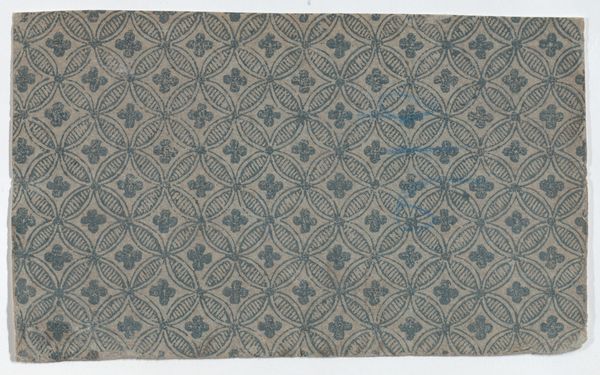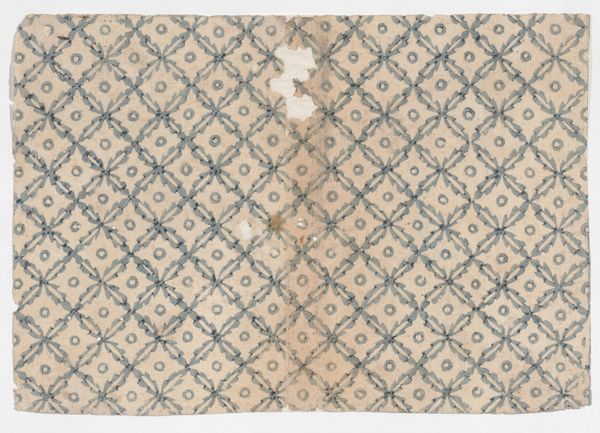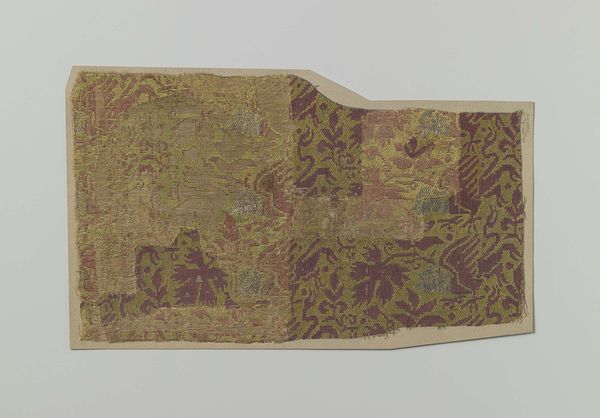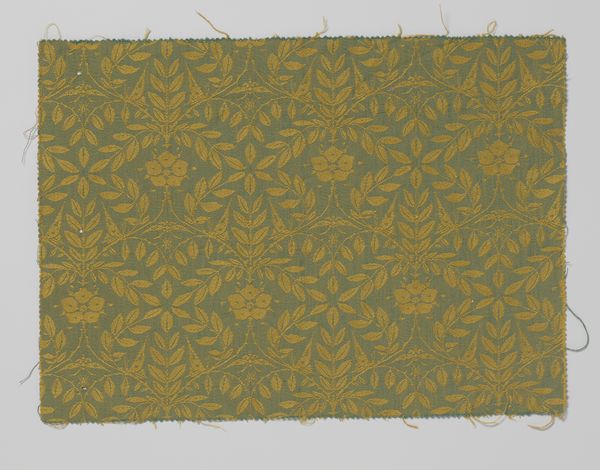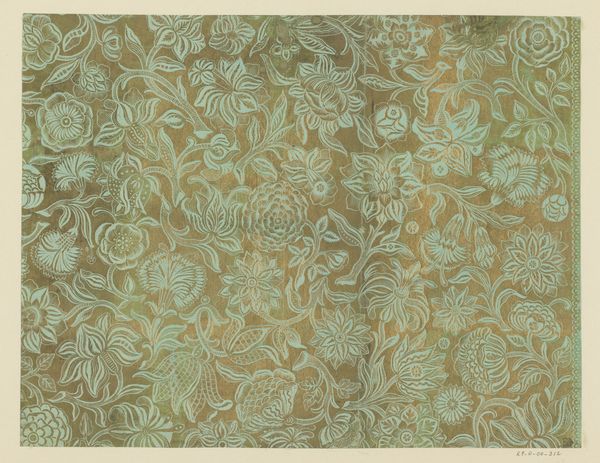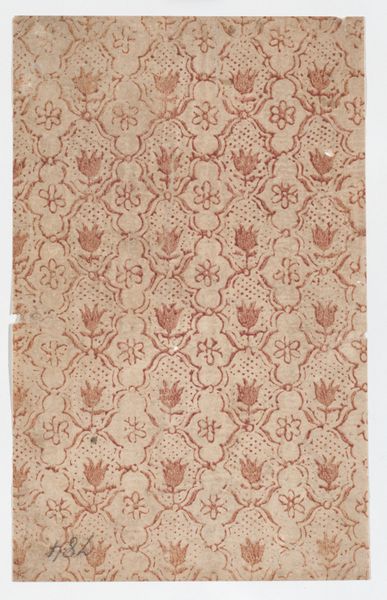
Fragment van wandbespanning of gordijnstof met patroon van bloemen, bladeren en insecten 1909 - 1924
0:00
0:00
theonieuwenhuis
Rijksmuseum
fibre-art, textile
#
natural stone pattern
#
fibre-art
#
naturalistic pattern
#
organic
#
art-nouveau
#
textile
#
repetitive shape and pattern
#
organic pattern
#
repetition of pattern
#
vertical pattern
#
pattern repetition
#
decorative-art
#
imprinted textile
#
layered pattern
#
organic texture
Dimensions: height 33.0 cm, width 186.0 cm
Copyright: Rijks Museum: Open Domain
This fragment of wall hanging or curtain fabric with a pattern of flowers, leaves, and insects, was made by Theo Nieuwenhuis, but we don’t know exactly when. You can tell there was a lot of thought put into the making of this design. It’s all about process, the way the pattern repeats itself, over and over. It’s like a dance, the leaves and flowers and insects moving across the surface, creating a rhythm that’s both calming and energizing. The color is muted, almost monochromatic, a kind of ochre that feels both earthy and elegant. The way the pattern is printed on the fabric makes it feel like it's been there forever, worn and loved. Like the patterns William Morris was developing around the same time. But where his are often dark and dramatic, these are a soft, organic celebration of nature, repeated, and repeated.
Comments
No comments
Be the first to comment and join the conversation on the ultimate creative platform.
